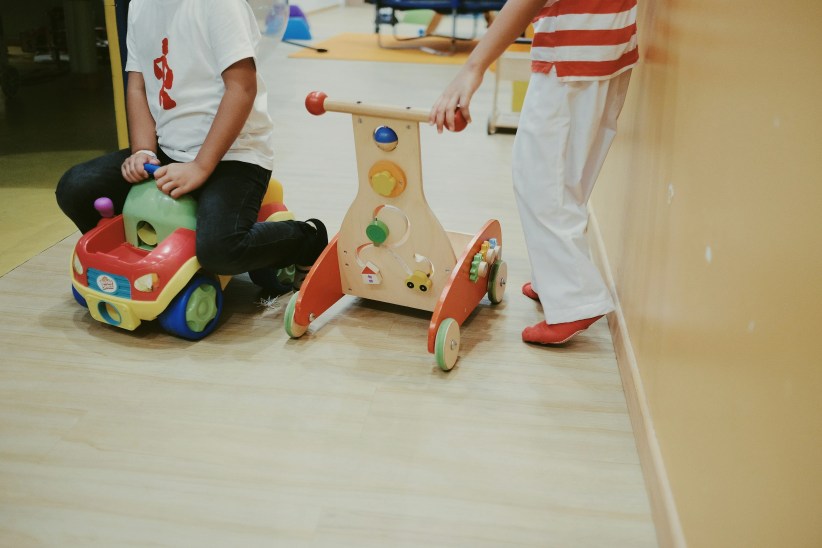 For the majority of American women, home birth is not even an idea floating around in their minds. According to an article published in the International Journal of Women’s Health, less than 1.5 percent of women in the United States choose a planned home birth. This is a great difference from other countries such as the Netherlands where 20 percent of births are experienced at home. Why might women in the US be a bit hesitant to choose a home birth? Partly because there is not a lot of exposure and explanation of how home births work. Let’s break down the pros and cons so that there is a clear, informed understanding of why this may be a viable option for some.
For the majority of American women, home birth is not even an idea floating around in their minds. According to an article published in the International Journal of Women’s Health, less than 1.5 percent of women in the United States choose a planned home birth. This is a great difference from other countries such as the Netherlands where 20 percent of births are experienced at home. Why might women in the US be a bit hesitant to choose a home birth? Partly because there is not a lot of exposure and explanation of how home births work. Let’s break down the pros and cons so that there is a clear, informed understanding of why this may be a viable option for some.
Home births are intended for low risk women. Here is a list of some reasons that would prevent someone from having a planned home birth:
- Gestational diabetes
- Insulin dependent diabetes
- Multiple babies
- High blood pressure
- Seizure disorder
- Premature labor (before 37 weeks) or extreme postdate (after 42 weeks)
- Placenta previa or marginal previa
- Breech or transverse baby
- History of postpartum psychosis
- Current alcohol or drug abuse problem
While some women may choose an unassisted home birth, the majority of planned home births are attended by trained midwives. In New York and several other states, only Certified Nurse Midwives (CNM) are allowed to practice midwifery by law. This credential requires the midwife be trained and licensed in nursing and midwifery with the minimum of at least a bachelor’s degree. There are other levels of midwifery, like Certified Midwife (CM), Certified Professional Midwife (CPM), Direct Entry Midwife (DEM), and Lay Midwife. For those choosing a midwife, it is important to consider your comfort level with the type of midwife you prefer.
Next, consider where you feel the safest and most secure. Having attended over 100 hospital births by the time I was pregnant with my first child, I had a very strong opinion of what I wanted for my birth and where I would feel the safest. Much to the dismay of my family, I felt the most secure at home. I did not want to be in the position of having to advocate for my rights to have routine interventions or face common place time restrictions on labor and birth. It was important to me to have my care be more personalize and not “routine.” These are some points I would put in the pros category. At home, under the watchful eye of my CNM, I was able to labor with intermittent monitoring, which is a practice that is supported by the World Health Organization and the American Congress of Obstetricians and Gynecologist as the safest manner for women without complications or other interventions. When at home, a women is also not restricted from food intake, limited movement, or receiving an IV and continuous fluids. She is also in her own space with her familiar and supportive people, which can affect the parasympathetic nervous system and make labor more functional.
Home birth midwives come very prepared for issues that may require immediate attention as well as the possibility of needing to transfer a woman in labor. I was surprised to learn the extent of the equipment midwives arrive with at a birth. For example, they bring an oxygen tank, different oxygen masks for mom and baby, ambu-bag for giving positive pressure ventilation, IV equipment and fluids, a doppler and gel, a blood pressure cuff and many, many other tools. If the midwife sees arising complications—blood pressure increase, worrisome fetal tones, or as my midwife called it, “cases where baby won’t come out,” the mother will need to transfer. Also, before labor even starts, it is vital to have a backup plan in place for transferring to a medical facility. The need to transfer would be in the cons category. While emergent and necessary, it can be a big disturbance and highly emotional for the mother to have to transfer to a hospital.
One last idea to chew on is that the personalized care provided by a midwife is often dramatically different than that of a traditional hospital-based obstetrician. Most home birth midwives come to your home for all or part of the prenatal exams. The appointments also are more thorough in terms of addressing not just the physical wellness of the mother and baby, but also the emotional state of the mother. My midwife told me she used to schedule each person for an hour long appointment.
How one chooses to birth is a very personal choice, but one that should be made with great consciousness. Where and with whom you give birth will greatly impact the experience and the outcome.
Debra Flashenberg is a certified labor support doula, Lamaze Childbirth Educator, mother-of-two, and the studio owner and director of the Prenatal Yoga Center. For more information, visit prenatalyogacenter.com!























